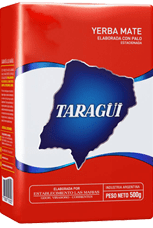
Yerba mate could prevent Parkinson’s disease
Once again, yerba mate hits the headlines with its multiple health benefits: this time thanks to a recent investigation by the National Council of Scientific and Technical Research of Argentina (“CONICET”). The experimental study, developed by the Faculty of Exact and Natural Sciences of the University of Buenos Aires, has shown that certain compounds in yerba mate could extend the life of the neurons responsible for body motion, the same ones that are affected by Parkinson’s disease.

After a scientific research in 2015 showed a favourable impact of Yerba Mate in 223 patients with Parkinson’s disease; it was necessary to explain these beneficial effects through an experimental model as well as studying potential neuroprotective agents, which would prevent the development of the disease.

The test consisted of synthesized yerba mate on a laboratory model of the aforementioned dopaminergic neurons. The results revealed that some substances in yerba mate have a powerful neuroprotective effect, reducing the death rate of these neurons in the same way certain substances in coffee or green tea do it, but more effectively than other known neuroprotective agents.
According to the study, whose extraordinary results have been published by the prestigious science magazine Movement Disorders, some compounds in yerba mate such as theobromine and chlorogenic acid have shown to have more powerful neuroprotective properties than caffeine and nicotine, while acting together or independently. According to the authors, this discovery suggests that the composition of yerba mate (whose active principles act similar to those in coffee) could be the key to prevent Parkinson’s disease, as well as developing and improving therapeutic techniques to treat it in the future.

This would be an extra advantage in the long list of benefits of regularly drinking yerba mate: a natural drink that is part of daily life in South America and it’s becoming a trend in the rest of the World.


